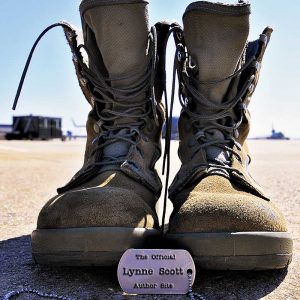Sometimes I find it impossible to tell you in a meaningful way exactly how I feel about certain things. You have by now figured out that I am rarely at a loss for words, but there are times when the words don’t seem to convey what I want them to convey. I don’t want to sound like a damn Hallmark card, nor do I want to sound preachy. But when it comes to certain things – you either believe or you don’t.
I believe that God abhors war, but holds a special place in his heart for warriors.
I believe in heaven and I know “the streets are guarded by United States Marines” and the U.S. Air Force is responsible for the flight path of angels.
I believe that God holds the common soldier, sailor, airman, and Marine in the same high regard as the most elite of any of the warrior ranks.
I believe that God holds a peaceful place in heaven for those who cannot find peace within after serving here on Earth.
I believe that “there are no atheists in foxholes.”
I believe that angels walk among us in battle and they answer to the names “corpsman, medic, and doc.”
I believe that as long as I remember someone and speak his name then he still lives.
I believe that the dead hear their names and find comfort in our remembrance.
Memorial Day is about the men and women who died while in military service. I appreciate that some now wish to make it about all those who served and I’m happy to include them too. But when I speak my names on Monday, it will be the names of those who actually died in service.
Two of the names I will speak this year when I raise my flag are neither family nor friend. They are men who came to me in other ways:
Major Richard Kibbey, Missing in action near Mu Ghia Pass on the Laos/North Vietnam border. 6 February 1967. He was the copilot of Jolly Green 05 (tail #65-12779) which was shot down while attempting the rescue of a downed pilot. I’ve had his POW bracelet since 1973.
And,
Private Rolland F. Revels, 2nd Ranger Battalion, who died 6 June 1944, and is buried in Colleville Cemetery in France. On D-Day, Dog, Easy and Fox Companies landed at Pointe du Hoc and members of Able, Baker, and Charlie Companies landed at Omaha Beach. You’ll find a large number of those brave young men in Colleville. I don’t know Private Revels family. I found a picture of his tombstone while I was researching for one of my stories and his name spoke to me. I have named a fictional military base for him in one of my books, and now I will speak to him on Monday and thank him for his service.
Based on my very simplistic belief system, I’m sure you will know where to find me at dawn on Memorial Day. I’ll be raising my flag, and I’ll be speaking their names.
If you don’t know someone personally, or you don’t have an ancestor lost in service, you can click on any National Cemetery and pick a name to honor or click on an image of the Vietnam War Memorial and select a name from the wall.

